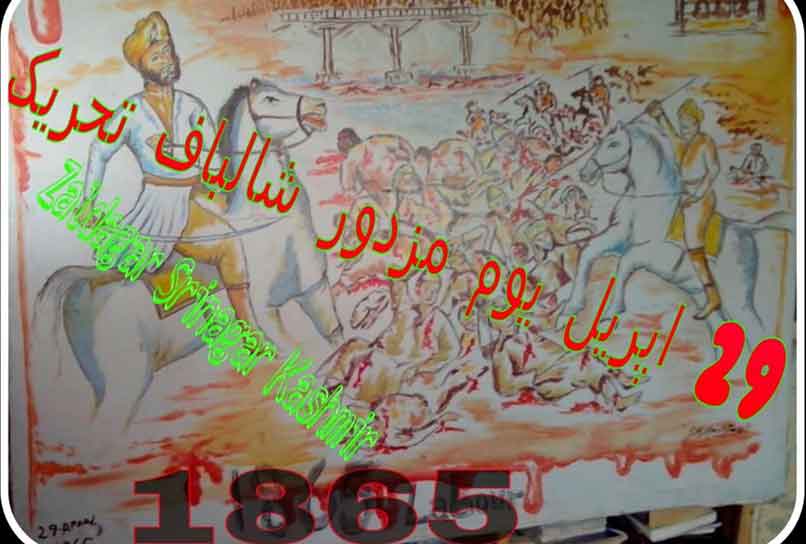The Unsung Heroes Of Kashmir The Labor Revolution in Kashmir (Shawlbaf Movement)
By Rayees Rasool
29 April, 2015
Countercurrents.org

First Labour Revolution in World History, in Kashmir on 29 April 1865, when workers, Artisans, weavers, Labours, Revolted against their Masters, who exploited, but was crushed with heavy Hand, drowned them in Haji Pather Sum Strean near Zaldager Srinagar, the summer capital. Many shawl weavers were Jailed in Jammu Fort and Bhuwanjan Ladakh.
April 29, 1865 was the day when shawl weavers marched through the streets of Srinagar’s old city against the cruel tax policies imposed on them by the Dogra regime. The shawl weavers (ShawlBaf) of Srinagar were compelled by the circumstances of turbulent working conditions, meager wages, excessive taxation and a ban on weavers who wanted to leave Kashmir valley.
The protests by the weavers were held outside the house of Pandit Raj Kak Dhar, the Kashmiri Pandit official who headed the Dagh Shawl Department, in the city’s Zaldgar locality. Records reveal that Dhar had given misinformation to the Dogra army that he was being attacked. As the protesters reached Zaldgar, the Dogra troops led by Colonel Bijoy Singh rounded off the demonstrators and asked them to disperse. When the unarmed protesters refused to accept the orders, the troops fired at them and later charged them with spears. Scores of protesters jumped off the Haji Rather Sum Bridge at Zaldgar, in the hope they would hide in the marsh underneath, but at least 28 bodies were recovered from the river, and over 100 sustained wounds.
Shawlbaf protest was perhaps the first organized protest for demands in the history of class struggle in India. The day holds very important position in Kashmir and every year resistance leader remembers these Martyrs as it laid the foundations of resistance against tyranny and capitalism.
The world observes the day for labourers from 1888 but the reality is that Kashmir raised its voice in1865- much earlier to 1888. This is another face of occupation that our history has been desorted, kept hidden for future generations. Our own historians who could narrate the tales of our bravery, failed in front of oppressor. Our nights were forgotten. Our craftsmen used to give dazzling dresses to queens with their own families were left to starve.
The other members of the agitation include Sheikh Rasool, Ubli Baba, Qudda Lal, and Sona Butt were imprisoned in various jails and were later tortured to death.
These Martyrs have been forgotten by the state and as well as the people of Kashmir.
Rayees Rasool, Project Coordinator, Criminal Justice Initiative, Human Rights Law Network, New Delhi
Tags
.
Comments are moderated

